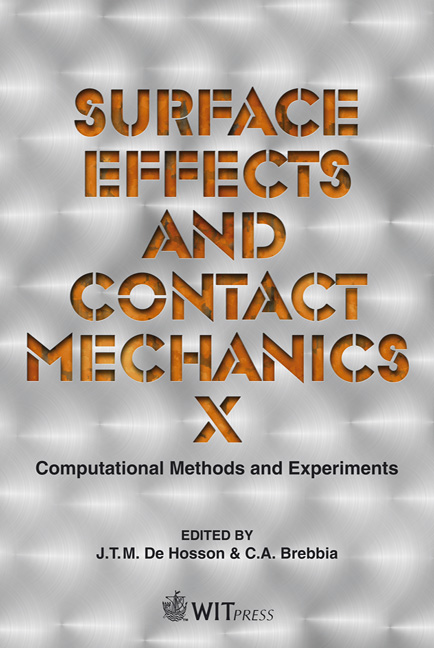Isotopic Engineering In Surface Science And Technology
Price
Free (open access)
Transaction
Volume
71
Pages
12
Page Range
193 - 204
Published
2011
Size
2,879 kb
Paper DOI
10.2495/SECM110171
Copyright
WIT Press
Author(s)
A. A. Berezin
Abstract
Isotopic Engineering (IE) is a generic term designating targeted use of specific isotopes to modify physical, chemical and technological properties of materials. Stable isotopes of the same chemical element differ in mass, diffusivity, magnetic properties and have different vibrational frequencies in crystalline matrices. This allows one to modify the bulk and surface properties of materials by using isotopic purification and/or changing relative abundances of stable isotopes. For example, natural carbon is a 99.1 percent mixture of C-12 and C- 13. Artificial diamonds grown from pure C-12 (C-13 removed) show significant increase of thermal conductivity due to reduced phonon scattering in isotopically pure crystal lattice. Other examples of IE include light confinement at isotopic interfaces (isotopic fiberoptics), isotopic random number generators, etc. This paper provides an overview of possible applications of IE to modify surface and contact properties. We discuss isotopic effects in optical, electrical and mechanical properties, corrosion initiation and corrosion passivation, as well as a variety of applications of IE to micro and nanotechnology. Of the latter, we discuss isotopic information storage and the formation of isotopic quantum wells at the contact of isotopically different interfaces. Keywords: isotopes, isotopic engineering, surfaces and interfaces, quantum effects, chaos, nanotechnology, tribology, quantum lubrication, corrosion, isotopic information technology. 1 Introduction It is a common knowledge of today that physical, chemical and mechanical properties of material objects derive from the behavior of the constituting atoms
Keywords
isotopes, isotopic engineering, surfaces and interfaces, quantum effects, chaos, nanotechnology, tribology, quantum lubrication, corrosion, isotopic information technology





